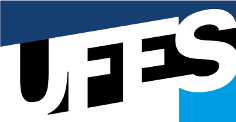7. REFERÊNCIAS BIBLIOGRÁFICAS
ALI, I. Current issues and challenges facing accounting education and the pedagogical implications: A review of the literature. Proceedings of Auckland Regional Accounting, 2011 Annual Conference, (pp. 1-18). Auckland., 2011 Acesso em 15 de Junho de 2016, disponível em http://www.aut.ac.nz/__data/assets/pdf_file/0004/247198/20.0-2011-ARA-Conference-paper-.pdf
APOSTOLOU, B. et al. Accounting education literature review (2015). Journal of Accounting Education, 33, n. 2, June 2015. 69-127.
BALDWIN, B., & RECKERS, P. Exploring The Role of Learning Style: Research in Accounting Education Policy. Journal of Accounting Education, 2(2), pp. 63-76, 1984.
BENTLEY, K., BREWER, P., & EATON, T. Motivating students to prepare for class and engage in discussion using the hot seat. Journal of Accounting Education, 27(3), pp. 155-167, 2009.
BOYLE, D. M. et al. Examining the perceptions of professionally oriented accounting faculty. Journal of Accounting Education, v.33, p. 1-15, 2015.
CARMONA, S. Accounting curriculum reform? The devil is in the detail. Critical Perspectives on Accounting, 24, 2013. 113-119.
LAFFIN, M., & GOMES, S. Formação Pedagógica do Professor de Contabilidade: O Tema em Debate. Arquivos Analíticos de Políticas Educativas, 24(77), pp. 1-31, 2016.
MARRONI, C. H.; RODRIGUES, A. F.; PANOSSO, A. Panorama histórico do ensino superior da graduação em contabilidade no Brasil - sob a égide normativa. Revista Enfoque: Reflexão Contábil, Maringá, v.32, n. 3, p.1-17, Set./Dez. 2013.
GIL. A. C. Didática do Ensino Superior. São Paulo: Atlas, 2008.
HOPPER, T. Making accounting degrees fit for a university. Critical Perspectives on Accounting, 24, p.127-135, 2013.
LEAL, E.A.; MIRANDA, G.J.; CASA NOVA, S.P.C. Revolucionando a sala de aula: como envolver o estudante aplicando técnicas de metodologias ativas de aprendizagem. São Paulo: Atlas, 2017.
LIBÂNEO, J. C. As Teorias Pedagógicas Modernas Revisitadas pelo Debate Contemporâneo na Educação. In: LIBÂNEO, J. C.; SANTOS, A. Educação na era do conhecimento em rede & transdiciplinaridade. 1a. ed. Campinas: Alínea, 2005. Cap. 1, p. 15-58. Disponivel em: <https://xa.yimg.com/kq/groups/13436574/790228301/name/correntes+pedag%2B%C2%A6gicas+lib%2B%C3%B3neo.pdf>. Acesso em: 5 Fevereiro 2017.
MARION, J.C.; MARION, A.L.C. Metodologias de Ensino na Área de Negócios: para cursos de administração, gestão, contabilidade e MBA. São Paulo: Atlas, 2006.
MARTINS, D.B.; ESPEJO, M.M.S.B. Problem Based Learning . PBL no Ensino de Contabilidade: Guia orientativo para professores e estudantes da nova geração. São Paulo: Atlas, 2015.
MUZIKAMI, M. G. N. Ensino: As abordagens do processo. São Paulo: EPU, 1986.
PELEIAS, I. R. et al. Evolução do Ensino da Contabilidade no Brasil: uma abordagem histórica. Revista Contabilidade & Finanças, São Paulo,p.19-32,2007 Disponível em: http://www.scielo.br/pdf/rcf/v18nspe/a03v18sp.pdf. Acesso em: 12 de Mar. 2015.
PHILIPS, C. R.; CRAIN, J. L. Job duties and responsibilities in public accounting: are student expectations unrealistic? Education + Training, 38, n. 9, 1996. 21-26. Disponivel em: http://dx.doi.org/10.1108/00400919610150554. cessado em 16/03/2015.
WATTS, T.; MCNAIR. Trigger points: enhancing generic skills in accounting education through changes to teaching practices. Australasian Accounting, Business and Finance, 2, n. 2, 2008. Disponivel em: <http://ro.uow.edu.au/aabfj/vol2/iss2/3/.>. Acesso em: 15 Janeiro 2017.
WATTY, K. Quality in accounting education: what say the academics? Quality Assurance in Education, 13, n. 2, 2005. 120-131.
WOLK, C.; SCHMIDT, T.; SWEENEY, J. Accounting Educators´ Problem-Solving Style and Their Pedagogical Perceptions and Preferences. Journal of Accounting Education, 15, n. 4, Autum 1997. 469-483.


